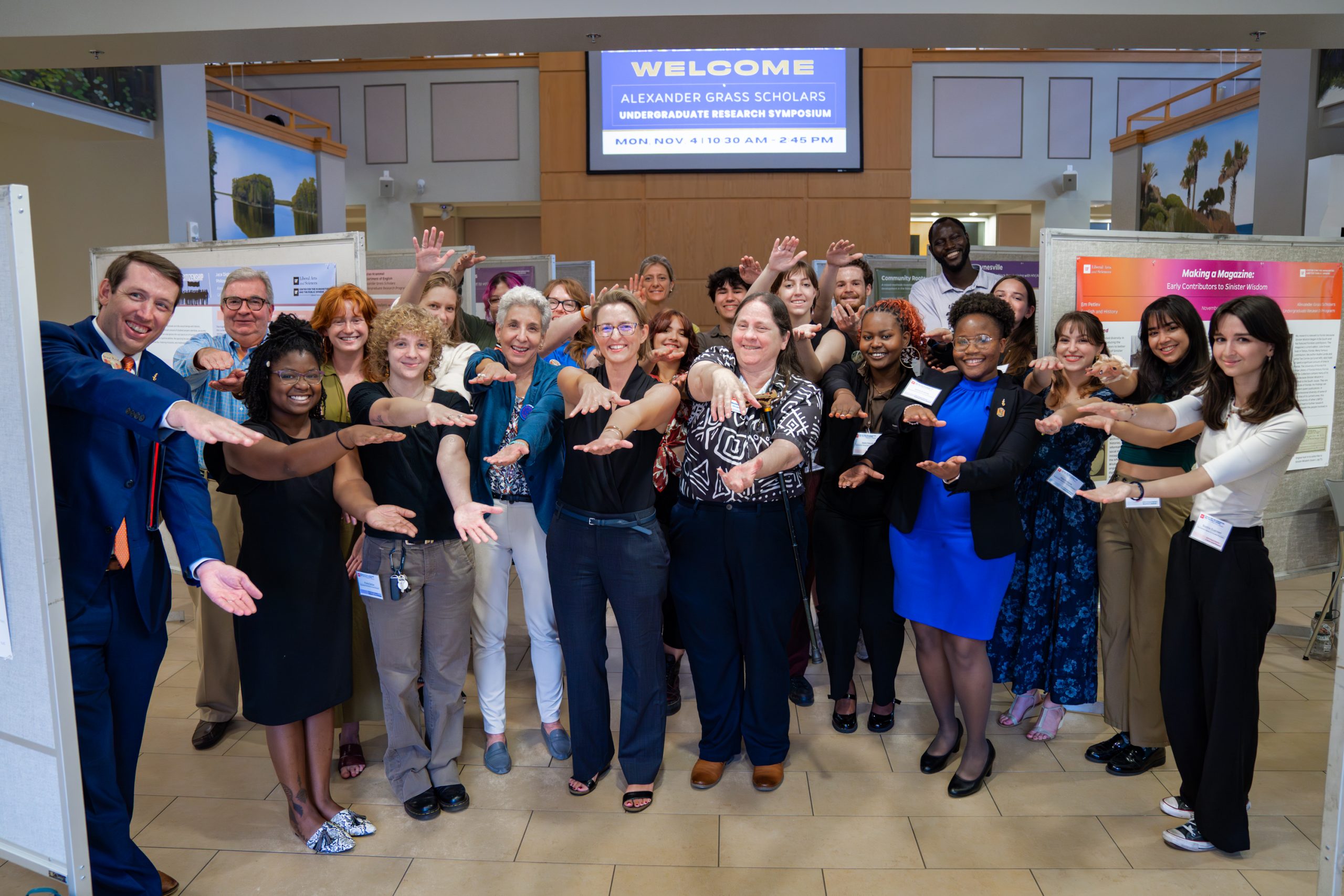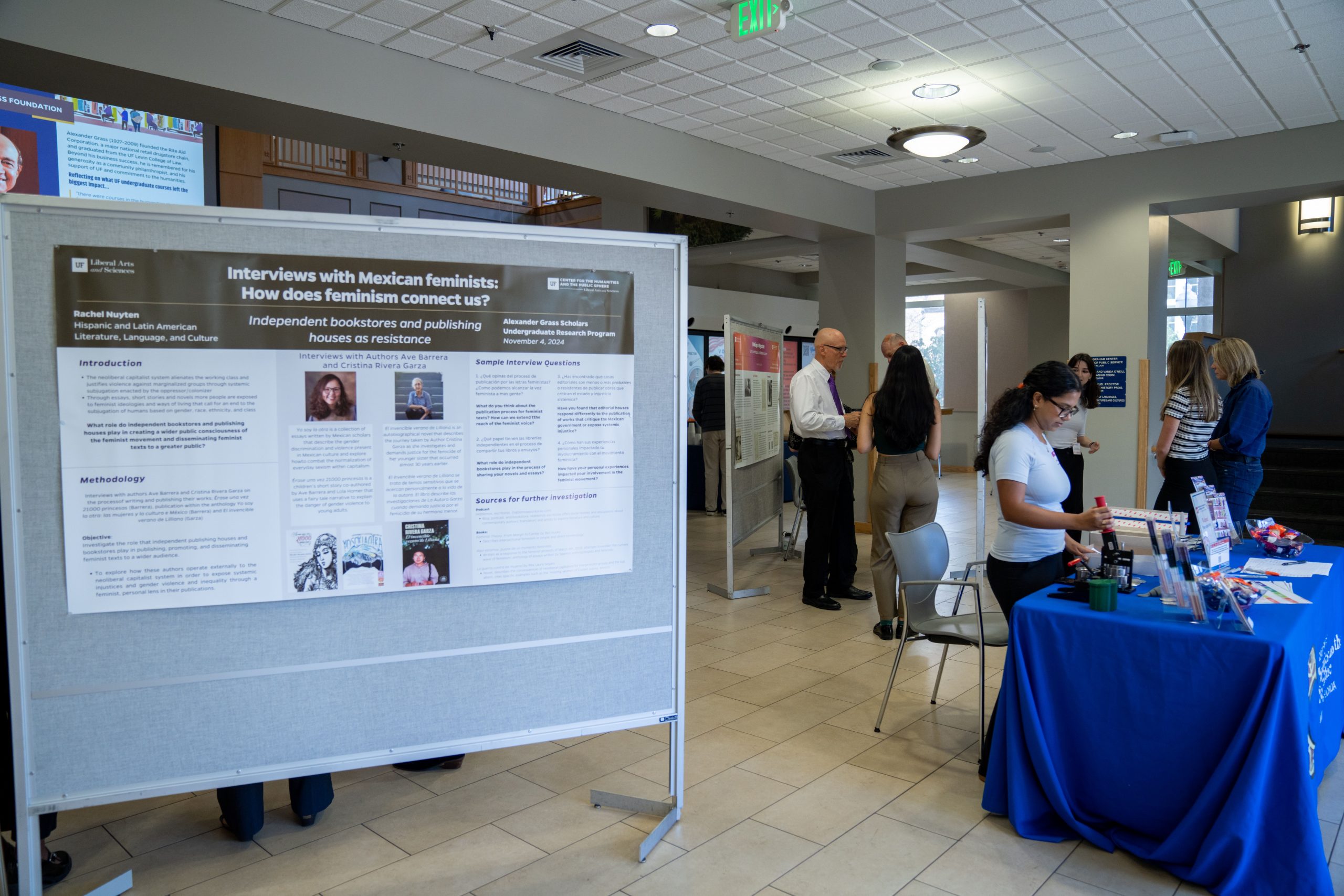
The Alexander Grass Scholars’ Program celebrates a successful first year
On November 4th, the Alexander Grass Scholars’ Program celebrated the end of its inaugural year with an undergraduate research symposium, giving the first cohort an opportunity to share their work with the university community. This program was made possible thanks to Liz Weese, President of the Alexander Grass Foundation and a UF donor, who pushed for increased funding to support undergraduate research programs. It was designed to help students understand and execute the components of humanities research methods and traditions.
The two-semester-long program is offered by the Center for the Humanities and the Public Sphere (CHPS). Students are placed in groups over the summer for collaborative projects and learn humanities research fundamentals before splitting up for independent projects in the fall. During the spring, faculty spend their time developing the program and recruiting more students, as spots for the program are limited and the selection process is highly competitive.
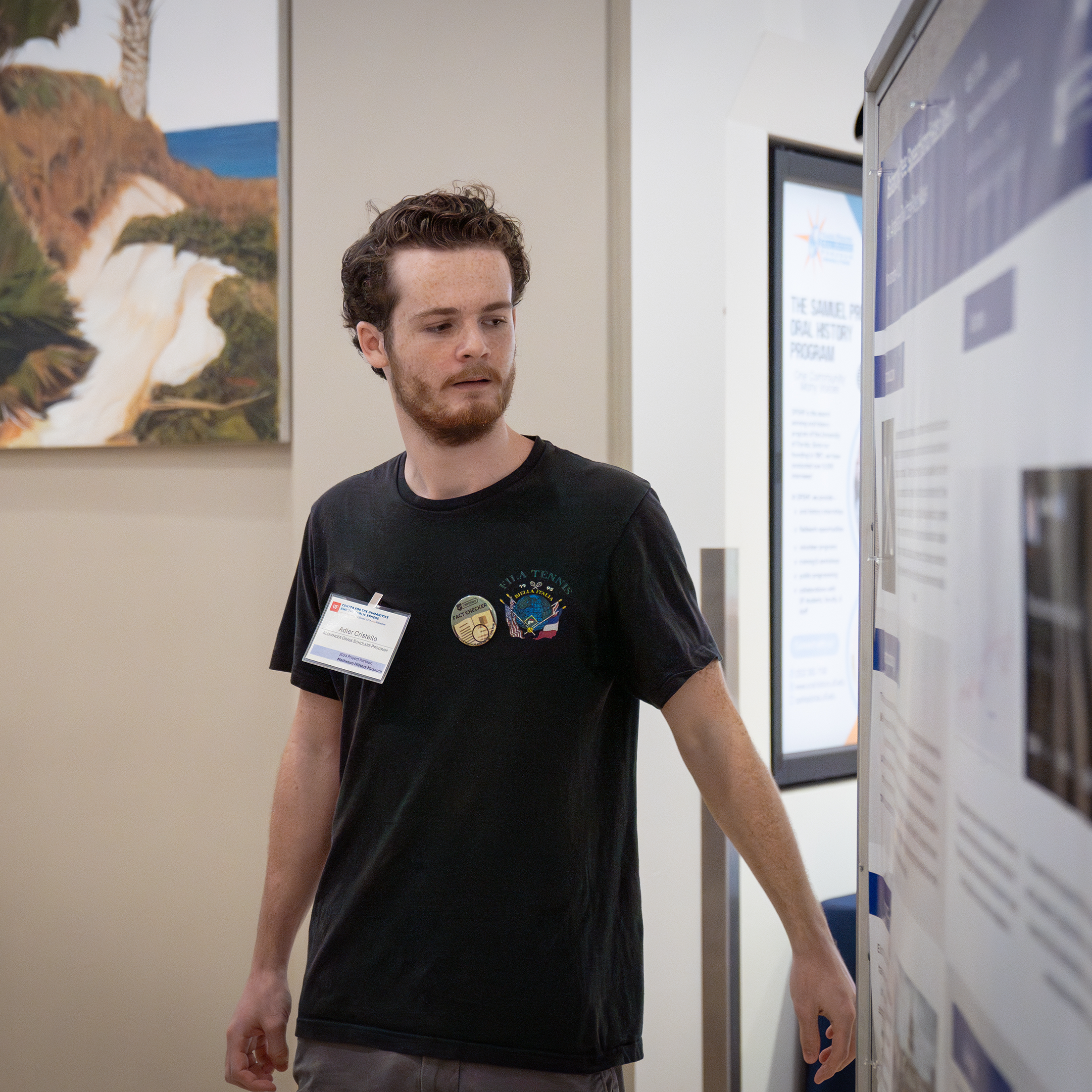
For their projects, the 20 students were tasked with finding a topic, searching for sources, conducting research, and analyzing and sharing their findings. These topics varied greatly, including LGBTQ+, race, and political issues, free speech, and the impacts of citrus farming in Florida. Along the way, students participated in smaller group activities and received personalized mentoring from faculty, graduate students, and CHPS staff.
“I joined this program because I always felt that research was an area I was weaker in,” said Adler Cristello, a third-year political science major whose project discussed free speech versus hate speech on Elon Musk’s Twitter/X. “My mentors taught me how to find sources and were especially helpful in helping me figure out the scope of this project.”
For many students, this program would be the first time they had ever participated in independent, student-led research projects.
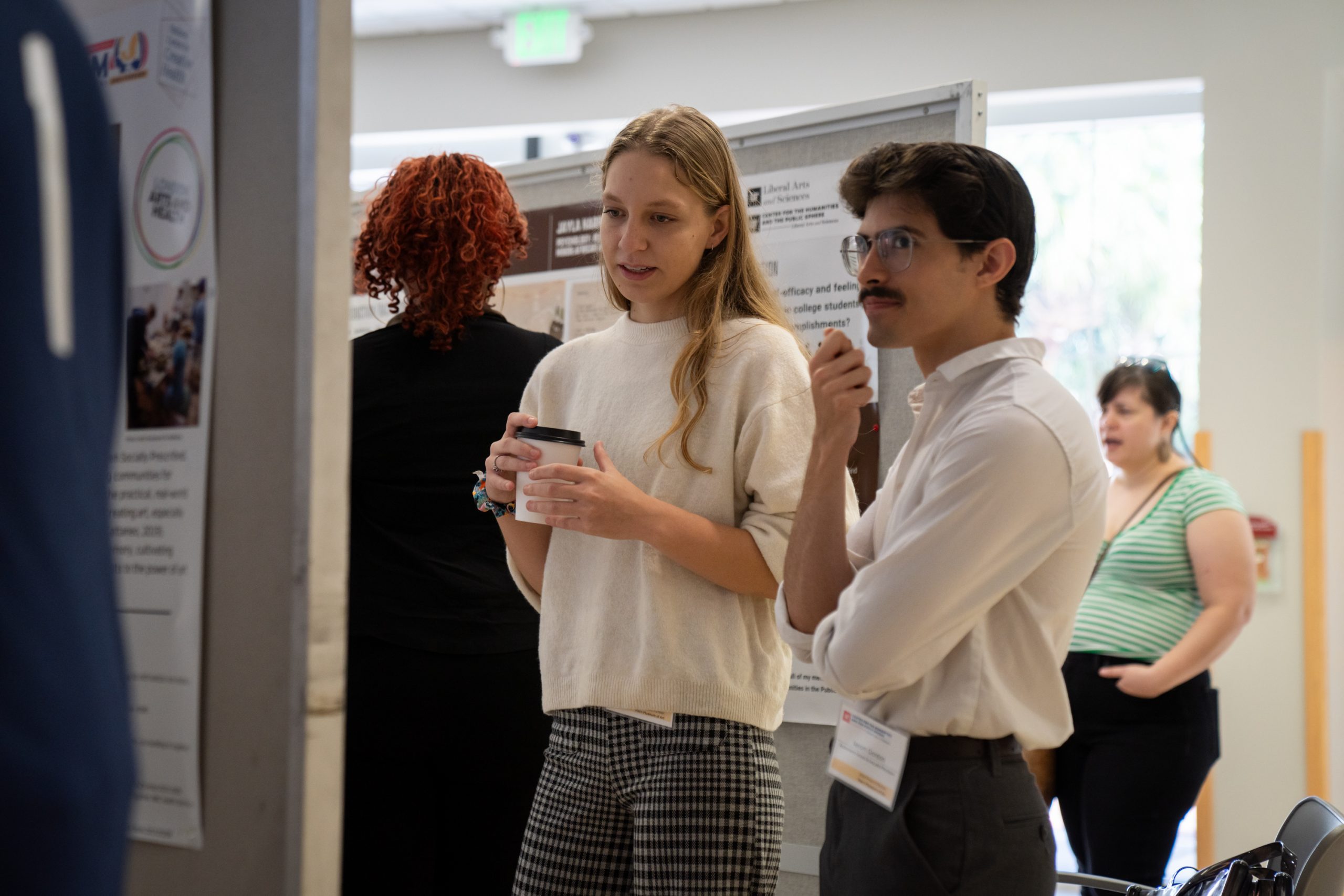
“While there are many programs like this in STEM fields, what sets this program apart is that it’s the first of its kind for the humanities,” said Jaime Ahlberg, the director of the CHPS. “We also encourage interdisciplinary collaboration, bringing in students from many different backgrounds and majors.”
Jace Digby, a fourth-year philosophy major, said that the best part of the program was the freedom students had to choose topics that they were personally interested in, rather than being assigned a topic.
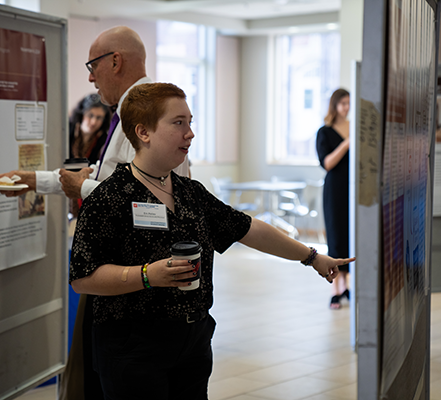
“I came to UF as a transfer student, so my experience may have been different, but while I had heard about research opportunities before, this was the first time I was offered the chance to do hands-on work with a topic that I really cared about,” she said. Digby’s research project studied the effects of sexual education on those with disabilities and their sexual citizenship.
“It’s a great experience for people who want to get involved with student research but don’t know how,” said second year English and history major Em Petlev, whose project examined the history of early feminist magazines, like “Sinister Wisdom.”
With the end of a successful semester and with positive feedback from the first group of students, Ahlberg and the rest of the CHPS staff are looking forward to continuing this program for years to come. “We’ll give our students the tools and the support they need, and they’ll bring the enthusiasm,” said Ahlberg.
